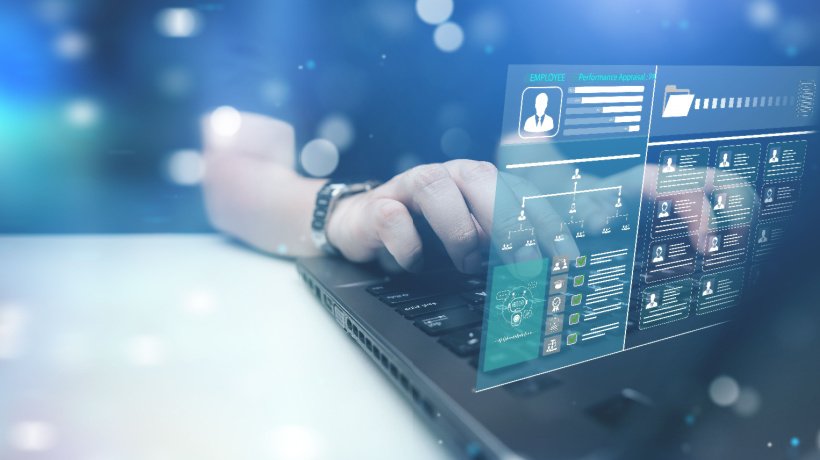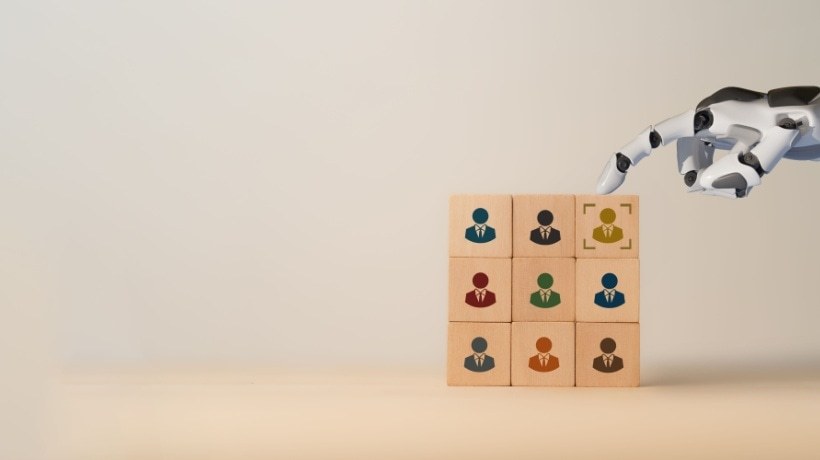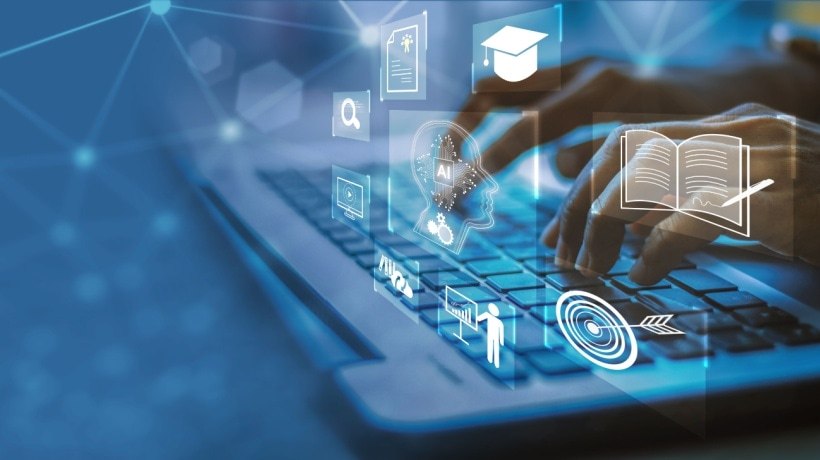Exploring The Impact Of AI On The Recruitment Process
Are you tired of spending countless hours scouring the internet for potential job candidates only to find that they are not a good fit for your company? Or, you may struggle with high turnover rates and find it difficult to retain top talent. These common recruitment challenges can be frustrating and time-consuming for HR professionals. Artificial Intelligence (AI) has emerged as a game-changing technology in the field of HR, offering solutions to many recruitment challenges. With the ability to automate and streamline various processes, AI can revolutionize HR departments' operations. This article will explore five ways AI can help navigate recruitment challenges.
The Evolving Landscape Of HR
In the traditional recruitment landscape, HR professionals grappled with hurdles such as inefficiencies in candidate sourcing, time-consuming manual resume screening, and difficulties matching the right talent to the right job. As organizations strived for operational efficiency, the HR sector was not left behind, with emerging trends in HR technology reshaping the recruitment paradigm.
Artificial Intelligence (AI) and Machine Learning (ML), predictive analytics, email marketing strategies, and HR software tools are steadily finding their place in modern HR departments, addressing various aspects of the recruitment process. These innovative solutions are not merely a response to the evolving digital era; they are necessary in a highly competitive market where attracting, hiring, and retaining the right talent can mean the difference between organizational success and stagnation.
Understanding AI In HR
AI in HR is a transformative technology that leverages Machine Learning and predictive analytics to optimize recruitment processes. AI drives efficiency by automating tedious tasks such as resume screening, job matching, and candidate sourcing. Additionally, AI-powered tools offer insights into candidate behavior, predict future performance, and aid decision-making. This enables HR professionals to make data-driven decisions, saving time and improving the quality of hires. Integrating AI in HR is no longer a luxury but a necessity for businesses seeking to gain a competitive edge in the talent acquisition landscape.
What Is The Role Of AI In Addressing HR And Recruitment Challenges?
AI plays a pivotal role in overcoming HR challenges. Here are five key ways that this technology is transforming the HR landscape:
1. Automated Candidate Sourcing
AI-powered tools can scan various online platforms to find potential candidates, saving valuable time for HR professionals. For example, leading job search portals utilize AI algorithms to match job descriptions with suitable candidates and directly cold outreach to them. Knowing that candidate sourcing is being handled lets you focus on other essential tasks.
2. Resume Screening
Screening resumes can be a tedious and time-consuming task. AI can rescue by scanning and filtering resumes based on predefined parameters, making the process more efficient and unbiased. For instance, various companies use AI to streamline resume screening, ensuring you only interact with the most qualified candidates.
3. Enhanced Candidate Experience
AI chatbots can answer common queries, schedule interviews, and provide feedback to candidates, facilitating a smooth and engaging candidate experience. There are many tools that transform the recruitment process, ensuring candidates feel valued and informed.
4. Predictive Analytics
AI can analyze past hiring data to predict future hiring trends, enabling you to make more strategic decisions. For example, LinkedIn's Talent Insights leverages AI to provide actionable insights about the talent market, helping you understand where and how to attract talent.
5. Bias-Free Hiring
AI-driven hiring processes can help reduce unconscious bias, promoting diversity and inclusion. Various tools use AI to ensure all candidates are evaluated on their skills and abilities, fostering a more diverse and inclusive workforce.
What Are The Key Recruitment Challenges?
Recruiting top talent is becoming increasingly competitive, and HR professionals face various recruitment challenges. Here are six key challenges:
- Talent sourcing and acquisition
Finding and attracting suitable candidates can be time-consuming, and competition for top talent is intense. Sourcing the right talent requires strategic planning and an understanding of the skills and qualifications necessary for the job. - Resume screening and applicant tracking
HR professionals often have to sift through countless resumes, which can be tedious and time-consuming. Applicant Tracking Systems can help but come with challenges, such as keeping the data updated and accurate. - Diversity and inclusion in hiring
Promoting diversity and inclusion in hiring processes can be challenging. Unconscious bias, societal norms, and lack of diverse talent pools can hamper efforts to build a diverse and inclusive organization. - Time and cost efficiency
The recruitment process can be lengthy and costly. Reducing the time-to-hire and cost-per-hire while maintaining high-quality hires is a significant challenge. - Candidate experience
Ensuring a positive candidate experience from the initial contact to the interview and offer stages can be tricky. A bad experience can deter talented candidates and damage your employer's brand. - Employee retention
Even after successful hiring, retaining top talent can prove challenging. High turnover rates can disrupt operations and lead to additional recruitment costs.
5 Ways AI Can Revolutionize The Recruitment Process For HR Professionals
AI has the potential to revolutionize HR and address these challenges in various ways. Some of the possible transformations are:
1. Automated Candidate Sourcing
AI can automate the candidate sourcing process, resulting in significant time savings for HR professionals. AI-powered tools can scan numerous job boards, social media platforms, and other online sources to find potential candidates whose qualifications and skills match the job's requirements. These tools use intelligent algorithms to analyze candidate information and determine their suitability for the job, reducing the manual workload of sourcing and shortlisting candidates. This allows HR professionals to dedicate more time to engaging with potential hires, improving the overall recruitment process.
2. Enhanced Resume Screening Using AI Algorithms
AI's role in resume screening is transformative. It automates the mundane task of manually sifting through countless resumes, reducing the likelihood of human error and bias. AI-based tools use Machine Learning algorithms to parse resumes, extract essential information, and rank candidates based on job requirements. They can quickly process vast resumes, allowing HR professionals to focus on the most promising candidates. This accelerates the recruitment process and increases its fairness and objectivity.
3. Predictive Analytics For Identifying High-Potential Candidates
Powered by AI, predictive analytics offers valuable insights into a candidate's potential and helps make strategic hiring decisions. AI uses historical data to predict which candidates are likely to succeed in a role, aiding in identifying high-potential candidates. These tools use AI to analyze data from various sources, including resumes, interviews, and assessments, to identify candidates who are likely to be successful. This allows HR professionals to make informed decisions, reducing the risk of costly hiring mistakes.
4. Improving Diversity And Reducing Bias In Recruitment Processes
AI has a significant role in promoting diversity and eliminating hiring bias. It can be designed to ignore demographic information such as age, race, gender, and religion, focusing solely on candidates' skills, qualifications, and potential. This helps ensure all applicants are evaluated fairly, leading to a more diverse and inclusive workforce.
AI can also spot patterns indicative of bias in job descriptions and suggest alternative phrasing, helping to attract a broader range of applicants. Furthermore, using AI in analytics can shed light on areas where diversity may be lacking, guiding improvements in recruitment strategies.
5. Streamlining Interview Processes With AI-Powered Tools
AI can streamline the interview process, making it more efficient and effective. Different tools use AI to conduct initial screening interviews, ask relevant questions, and analyze responses. Some, for instance, use Natural Language Processing to interact with candidates via chat or email. Others use AI to analyze video interviews, assessing factors such as speech patterns and facial expressions These tools save time for HR professionals and provide a consistent evaluation process, enhancing fairness and objectivity. Thus, AI accelerates the interview process and contributes to a better candidate experience.
Challenges And Considerations Of AI In HR
1. Data Privacy And Security
AI-driven recruitment tools must handle significant personal and sensitive data. Ensuring this data is protected and used ethically is critical. Employers must be transparent about their use of AI and how candidate data is stored, processed, and protected.
2. Transparency
Candidates should know if an AI tool is used in recruitment. They should be informed about how the AI assesses and scores their applications.
3. Bias In AI Algorithms
While AI can help reduce biases in the hiring process, if the data used to train these AI systems contains biases, the AI could inadvertently perpetuate these biases. Using unbiased data to train AI systems to ensure impartiality is crucial.
4. Impact On Jobs
As AI automates some HR tasks, there may be concerns about job displacement for HR professionals. It's important to reassure employees that AI is a tool to aid their work, not replace them.
5. Legal Compliance
AI-driven recruitment must align with employment laws and regulations. Any decision made by AI tools should not discriminate or violate any laws.
6. Human Oversight
Despite AI's capabilities, human oversight remains necessary to ensure fairness, interpret results, and make final decisions. Relying solely on AI could lead to mistakes or oversights not readily identifiable by an algorithm.
Future Trends Of AI In HR And Recruitment
The future of AI in HR is marked by continuous advancement. Emerging technologies are improving how we recruit, train, and retain employees, driving a more efficient, inclusive, and strategic HR function. Key trends to watch include:
1. Integration Of AI And IoT
The convergence of AI and the Internet of Things (IoT) provides HR with new methods for monitoring and enhancing employee productivity and well-being. Wearable devices can provide insights into employee health, stress levels, and engagement, allowing for personalized support and management.
2. Virtual Reality (VR) In Training
VR can simulate real-world scenarios for training purposes, providing a more immersive and practical learning experience. AI can enhance this by personalizing the training based on the employee's performance, learning style, and needs.
3. AI-Powered Employee Engagement Tools
AI is being used to enhance employee engagement through personalized recommendations for career development, with AI chatbots answering HR-related queries and sentiment analysis monitoring and improving employee morale.
4. Advanced Predictive Analytics
AI's ability to analyze and predict trends continually improves. Advanced predictive analytics can help HR more effectively anticipate and manage issues like employee turnover, performance, and succession planning.
5. AI In Employee Wellness Programs
AI can help to personalize wellness programs to individual employee needs, using data to recommend personalized health activities, monitor mental health, and provide resources for stress management.
6. Blockchain In HR
While not strictly an AI technology, blockchain's secure, transparent, and decentralized nature has potential uses in HR, such as in validating candidate qualifications or streamlining payroll in international contexts. AI can enhance this by automating and optimizing the use of blockchain data.
FAQ
1. What Measures Can Be Taken To Ensure Ethical Use Of AI In HR?
To ensure the ethical use of AI in HR, organizations should be transparent about their use of AI and how they handle candidate data. They must also ensure that the data used to train AI systems is unbiased and comply with employment laws.
2. Will AI Completely Replace HR Professionals?
No, AI cannot replace HR professionals entirely. While AI can automate specific tasks, human oversight and decision-making remain crucial for AI's ethical and fair use in HR.
3. How Can AI Improve Diversity And Inclusion In The Workplace?
AI can help improve diversity and inclusion by removing biases from recruitment processes, identifying areas for improvement, and personalizing employee engagement efforts. It can also help eliminate discrimination.
4. How Do AI And IoT Work Together To Enhance HR Functions?
AI and IoT can enhance HR functions by providing real-time employee performance, well-being, and engagement data. This data can then be used to personalize training programs, improve safety measures, and promote a healthier work-life balance for employees.
5. Can AI Truly Remove Bias From The Recruitment Process?
While AI can potentially reduce bias in recruitment processes, it is not a foolproof solution. To truly eliminate bias, organizations must ensure that the data used to train AI systems is unbiased and regularly monitor and evaluate the results for any signs of potential bias. Human oversight also remains crucial to identifying and addressing any issues that may arise.
Final Thoughts
The transformative impact of Artificial Intelligence on Human Resources cannot be overstated. Its potential to streamline recruitment processes, enhance diversity, reduce bias, and provide predictive analytics is revolutionizing the HR landscape. However, it's not without its challenges, such as data privacy, algorithmic bias, and legal compliance, which necessitate mindful implementation and continuous human oversight.
The future of AI in HR is promising, with advancements like IoT integration, VR in training, AI-powered employee engagement tools, and the use of blockchain all paving the way for an efficient, inclusive, and strategic HR function. Don't get left behind in this technology-driven era. Embrace the power of AI in your HR processes today for better recruitment outcomes and a more engaged, diverse workforce. Remember, your investment in AI now will yield significant dividends in the future, placing your organization at the cutting edge of innovation and inclusivity. Leap into the future of HR—adopt AI today!









